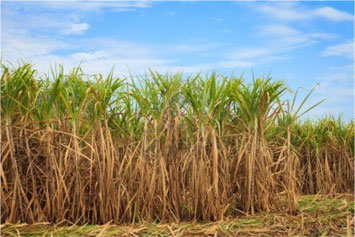
WHAT IS SUGAR-CANE PAPER?
Sugar-cane paper is produced from the sugar-cane fibers that are the residue from the sugar-cane refining process. These fibers contain cellulose. Cellulose is the basic building block used to produce most papers. The sugar-cane fiber replaces the traditional wood-based fibers used to produce most papers.
PAPER FROM SUGAR CANE SAVES TREES AND MONEY
In 2009, a new way to make paper more easily and cheaply from bagasse, the fibrous sugar cane waste from sugar production, than from trees was discovered by a Queensland University of Technology researcher in Australia. QUT Sugar Research & Innovation research fellow Tom Rainey dispelled the myth that bagasse paper production would never be economically viable. Mr. Rainey said bagasse could be used to make generic writing paper, tissues and packaging, and help lower the amount of plantation and old growth forest that was cut down for paper production. “My research has overcome a major technical hurdle to optimizing bagasse fiber, so that it can be made into pulp for the production of paper, board, structural and packaging materials,” Mr. Rainey said. “This process will be more profitable because the raw sugar cane material is up to five times cheaper to buy than wood, and higher paper production rates are possible.” Mr. Rainey also suggested that this technology could provide a new market for sugar-cane growers. Provided by: Queensland University of Technology.
HOW IS SUGAR-CANE PAPER MADE?
The sugar-cane “pulp,” the residue known as bagasse that remains from the sugar-cane refining process, is transferred from the refiner to the paper mill. The pulp is refined and treated at the mill, in a similar way that wood pulp is used at a traditional paper mill.
WHY USE SUGAR-CANE PAPER?
This is the ultimate bio-sustainable solution. The fibers that remain from the sugar-cane refining process have traditionally been burned (contributing to greenhouse emissions), land-filled (a nightmare of its own) or otherwise wastefully disposed of, at any given time. By converting the fibers to sugar-cane paper, this not only helps to prevent environmental damage, but also uses an available resource instead of harvesting trees. Additionally, bagasse (as sugarcane pulp is known) has the added advantage over other forms of paper-making feedstock in that it requires fewer greenhouse gases to collect, compared to harvesting of wood chips, as the fiber has already been transported to the factory for extracting the sugar.
SUGAR-CANE PAPER: THE ADVANTAGES IN A NUTSHELL
- Paper made from sugar cane does not contribute to deforestation.
- If it is not recycled, it degrades faster than regular paper.
- It is cleaner to make than run-of-the-mill paper
- It is recyclable, and it can be recycled with paper made from trees.
- Sugar-cane paper is less expensive because the raw sugar-cane material is up to five times cheaper to buy than wood, and higher paper production rates are possible.
- Sugar-cane paper is similar to Kraft Paper in that it can be printed offset or Flexographic and accepts inks/color readily. Lamination is not recommended for sugar-cane paper or any other eco-conscious paper.
MODERNARTS FEATURES SUGAR-CANE PAPER SHOPPING BAGS: THE BENEFITS
- They carry a very competitive price tag in comparison to wood-derived paper shopping bags.
- They are as strong or stronger and can carry the same weight as wood-derived paper shopping bags.
- They accept inks/color just like wood-derived paper shopping bags.
- The Ultimate Sustainable Solution: Sugar-cane paper shopping bags can be recycled and prevent deforestation. They also lessen the amount of travel time (fuel and emissions) used in wood-derived paper processes.
TROUBLESHOOTING
In planning your paper-shopping-bag requirements, keep in mind our most sustainable solution: bagasse-paper shopping bags. Talk to ModernArts about customizing these sugar-cane paper shopping bags to suit your needs. And above all, join ModernArts in Reusing, Reducing, and Recycling in the 21st century. Re-Imagine your shopping-bag inventory by chatting with one of our design specialists at 518 828 6800 or if you prefer to write, please email ecosound@modern-arts.com